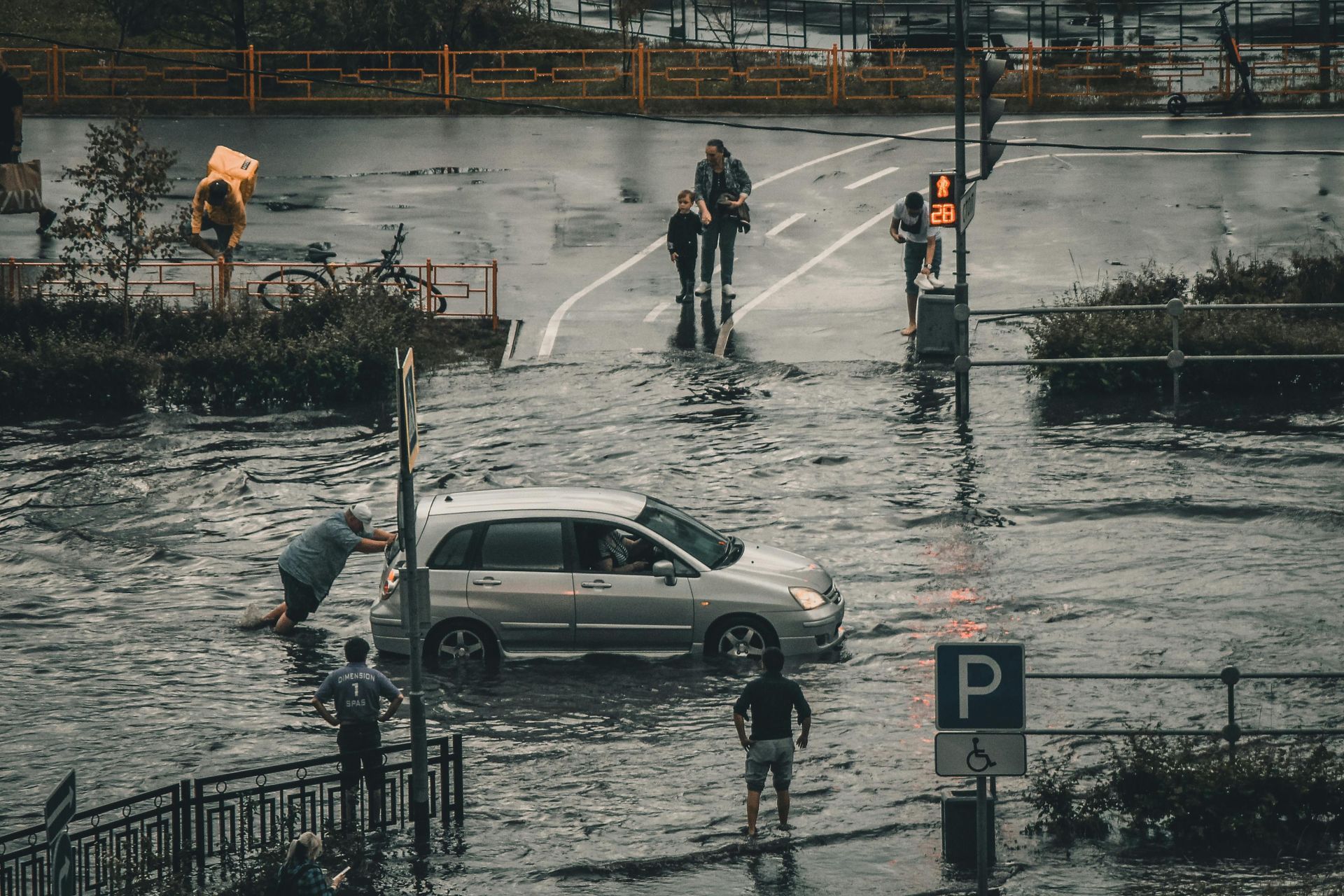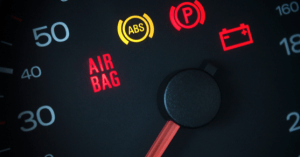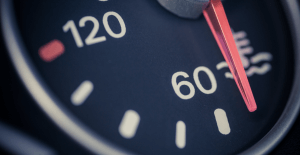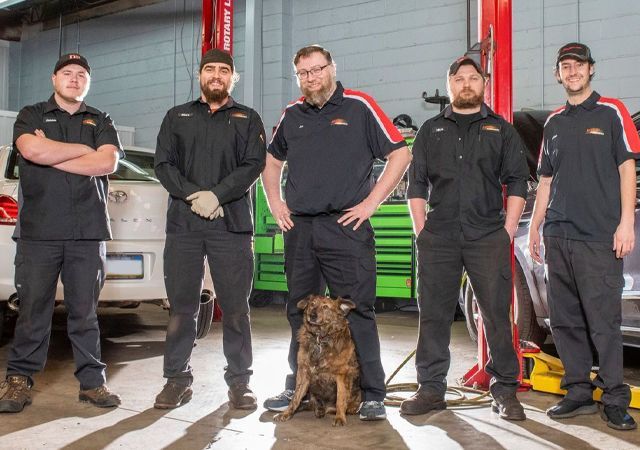Beware of Flood-Damaged Cars: What You Need to Know Before Buying a Used Vehicle
Beware of Flood-Damaged Cars: What You Need to Know Before Buying a Used Vehicle

In the aftermath of recent floods, the used car market may be flooded (pun intended) with vehicles that have sustained water damage. Unfortunately, many of these flood-damaged cars make their way to dealerships or private sellers without full disclosure of their history. For potential buyers, this poses a significant risk: purchasing a vehicle that looks good on the outside but is riddled with hidden issues beneath the surface.
Flood-damaged vehicles are notoriously difficult to repair and can lead to costly maintenance down the road. Before you buy a used car, it's important to understand the risks of flood-damaged vehicles and how to protect yourself from getting stuck with one.
How Flood Damage Affects Vehicles
Water intrusion in a vehicle can cause severe damage that isn’t always immediately visible. While a car may look pristine after being thoroughly cleaned and detailed, flooding can compromise multiple systems, leading to serious and expensive problems.
Here are some of the most common complications that arise from buying a flood-damaged car:
- Electrical Issues: Water can seep into a vehicle’s electrical systems, leading to corrosion and malfunction. Wiring, sensors, and critical components such as the engine control module (ECM) can fail unexpectedly after water exposure, leading to expensive repairs. Electrical issues are often intermittent, making them difficult to diagnose and repair.
- Mechanical Damage: Water entering the engine, transmission, or other mechanical systems can cause internal corrosion. This may lead to engine failure, transmission problems, or damage to the brakes and suspension components. Water in the engine oil or transmission fluid can cause irreversible harm over time.
- Mold and Mildew: Flooded vehicles often develop mold and mildew, which not only produces unpleasant odors but can also damage upholstery and interiors. Mold can also trigger respiratory issues for passengers, making the car unsafe to drive.
- Compromised Safety Features: Water exposure can affect safety systems such as airbags, anti-lock brakes (ABS), and traction control. These systems rely heavily on electrical components, which, if corroded or damaged, may not function correctly in the event of an accident.
- Long-Term Reliability Issues: While a flood-damaged car might run well for a short period, hidden damage often surfaces months or even years later, resulting in repeated visits to the repair shop. Flood-related issues can also significantly reduce the vehicle’s lifespan.
How to Identify a Flood-Damaged Vehicle
Fortunately, there are ways to protect yourself from purchasing a flood-damaged car. Here are a few steps you can take:
- Check the Vehicle History Report: Services like CARFAX or AutoCheck can provide a detailed history of the vehicle, including whether it has been reported as flood-damaged. However, not all flood-damaged cars make it onto these reports, so further investigation is necessary.
- Look for Water Damage Signs: Look closely for signs of water damage, such as:
- Musty or moldy odors inside the car.
- Water stains or rust on the seats, carpet, or interior panels.
- Discoloration on metal parts under the hood or in the trunk.
- Moisture inside the headlights or taillights.
- Rust or corrosion on exposed screws, bolts, or other metal components.
- Inspect the Undercarriage: Check the undercarriage for signs of excessive rust or silt. Floodwater can leave behind dirt and debris in hard-to-reach areas, and excessive rust on the undercarriage could indicate prolonged exposure to water.
- Have a Professional Inspection: If you suspect a car may have flood damage, have it inspected by a trusted mechanic. An experienced technician can perform a thorough check, including testing the electrical systems, inspecting for hidden water damage, and assessing the overall condition of the car.
How Flood-Damaged Cars End Up on the Market
Flood-damaged cars often make their way into the used car market through a process called "title washing." In many cases, insurance companies will declare a flooded vehicle a total loss, and the car will receive a salvage title. However, some dishonest sellers or dealers will attempt to "wash" the title by registering the vehicle in another state where the title history may not be fully disclosed.
Unsuspecting buyers are often drawn to these vehicles because they are sold at a lower price than comparable models. However, the savings are often short-lived, as the hidden damage can result in thousands of dollars in repair costs.
How to Avoid Buying a Flood-Damaged Car
Protecting yourself from buying a flood-damaged car requires vigilance. Here are a few tips:
- Buy from Reputable Sellers: Purchasing a used vehicle from a well-known dealership or a trusted seller can help minimize the risk of buying a flood-damaged car. Reputable dealerships are less likely to deal with vehicles that have hidden damage.
- Request a Pre-Purchase Inspection: Always ask for a pre-purchase inspection in Doylestown, especially if the vehicle is priced below market value or if there are any signs of potential water damage. This inspection can reveal hidden issues that aren’t visible during a basic walkaround.
- Be Cautious of Out-of-State Vehicles: If a used car has been recently relocated from a flood-prone area, this could be a red flag. Always ask about the vehicle’s history and ownership details.
- Check the Title Carefully: If the vehicle’s title is marked as "salvage" or "rebuilt," it has likely sustained significant damage, possibly from flooding. Avoid vehicles with unclear or questionable title histories.
Final Thoughts on Buying a Used Car in a Flood-Prone Era
While purchasing a used car can save you money upfront, it’s important to be cautious in the wake of recent floods. Flood-damaged vehicles can look appealing on the outside but may come with a host of hidden and expensive problems. Taking the necessary precautions—like checking vehicle history reports, thoroughly inspecting for water damage, and consulting with a trusted mechanic—can help you avoid buying a vehicle that will cause you headaches and hefty repair bills in the future.
If you’re in the market for a used car in Doylestown, PA, don’t hesitate to bring it to us at Epoch Automotive for a comprehensive pre-purchase inspection. Our experienced technicians will ensure the vehicle is safe, reliable, and free of flood damage.





